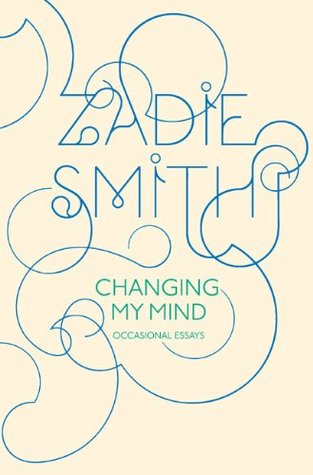Middlemarch and Everybody
The young Eliot could exult only in the perfect truths we glean from certain books in our libraries; the mature Eliot had learned to have sympathy for the stumbling errors of human beings. [...]
this fits perfectly into my theories about being an adult! also into killing your heroes
about George Eliot
The young Eliot could exult only in the perfect truths we glean from certain books in our libraries; the mature Eliot had learned to have sympathy for the stumbling errors of human beings. [...]
this fits perfectly into my theories about being an adult! also into killing your heroes
about George Eliot
[...] With a scalpel Eliot dissects degrees of human velleity, finding the conscious ction hidden within the impulse hiden within the desire hidden within the will tucked away deep inside the decision that we have obfuscated even from ourselves. (She is very modern in this; she articulates the obsessive circles of self-consciousness and self-deception as sharply as that other master of diffusion, David Foster Wallace. Or maybe we should say that David Foster Wallace is very Victorian.) [...]
[...] With a scalpel Eliot dissects degrees of human velleity, finding the conscious ction hidden within the impulse hiden within the desire hidden within the will tucked away deep inside the decision that we have obfuscated even from ourselves. (She is very modern in this; she articulates the obsessive circles of self-consciousness and self-deception as sharply as that other master of diffusion, David Foster Wallace. Or maybe we should say that David Foster Wallace is very Victorian.) [...]
velleity
(en)
(noun) the lowest degree of volition / (noun) a slight wish or tendency; inclination
With a scalpel Eliot dissects degrees of human velleity
I thought it had something to do with being veiled lol
With a scalpel Eliot dissects degrees of human velleity
I thought it had something to do with being veiled lol
[...] All her people are striving toward the fullest truth, the least partial good. Except when Eliot thought of striving, she had more in mind than Austen's hope of happy marriages, or Dickens's dream of resolved mysteries. She was thinking of Spinoza's kind of striving, conatus. From Spinoza, Eliot took the idea that the good we strive for should be nothing more than "what we certainly know will be useful to us," not a fixed point, no specific moral system, not, properly speaking, a morality at all. It cannot be found in the pursuit of transcendental reward, as Dorothea believes it to be, or in one's ability to conform to a set of rules, as Lydgate attempts when he submits to a conventional marriage. Instead, wise men pursue what is best in and best for their own natures. They think of the good as a dynamic, unpredictable combination of forces, different, in practice, for each of us. It's that principle that illuminates Middlemarch. Like Spinoza's wise men, Eliot's people aer always seeking to match what is good in themselves in joyful combinations with other good things in the world. [...]
[...] All her people are striving toward the fullest truth, the least partial good. Except when Eliot thought of striving, she had more in mind than Austen's hope of happy marriages, or Dickens's dream of resolved mysteries. She was thinking of Spinoza's kind of striving, conatus. From Spinoza, Eliot took the idea that the good we strive for should be nothing more than "what we certainly know will be useful to us," not a fixed point, no specific moral system, not, properly speaking, a morality at all. It cannot be found in the pursuit of transcendental reward, as Dorothea believes it to be, or in one's ability to conform to a set of rules, as Lydgate attempts when he submits to a conventional marriage. Instead, wise men pursue what is best in and best for their own natures. They think of the good as a dynamic, unpredictable combination of forces, different, in practice, for each of us. It's that principle that illuminates Middlemarch. Like Spinoza's wise men, Eliot's people aer always seeking to match what is good in themselves in joyful combinations with other good things in the world. [...]
edifying
(en)
(verb) build / (verb) establish / (verb) to instruct and improve especially in moral and religious knowledge; uplift / (verb) enlighten inform
conatus
(la)
means effort, endeavor, impulse, inclination, tendency, undertaking striving; in early philosophies of psychology and metaphysics, is an innate inclination of a thing to continue to exist and enhance itself
She was thinking of Spinoza's kind of striving, conatus
She was thinking of Spinoza's kind of striving, conatus
Baruch Spinoza
(en)
Dutch philosopher of Sephardi/Portuguese origin; in Ethics, laid groundwork for the 18th-century Enlightenment and modern biblical criticism, including modern conceptions of the self and the universe
She was thinking of Spinoza's kind of striving, conatus.
embarassingly, I don't think I've heard of him before
She was thinking of Spinoza's kind of striving, conatus.
embarassingly, I don't think I've heard of him before
[...] This is not biblical morality but practical morality: Fred has done something wrong in the world, and his true punishment lies not in the next world but in this one. [...]
about someone finding morality as a result of loving someone and thus seeing himself through her eyes. just thought it was a nice sentence that also happens to cunningly undermine biblical morality
[...] This is not biblical morality but practical morality: Fred has done something wrong in the world, and his true punishment lies not in the next world but in this one. [...]
about someone finding morality as a result of loving someone and thus seeing himself through her eyes. just thought it was a nice sentence that also happens to cunningly undermine biblical morality
aperçu
(en)
(borrowed from French) a comment or brief reference that makes an illuminating or entertaining point

